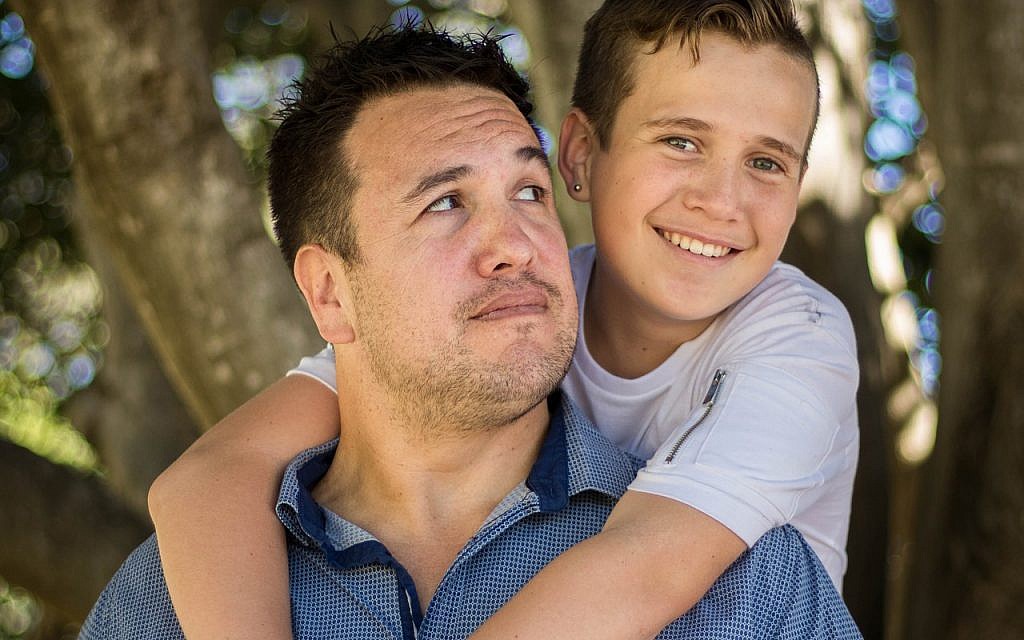Having ‘The Big Talk’ with Our Children
Urologist Barry Zisholtz advises parents on how and why to discuss puberty with their kids.

Recently, I was at breakfast with a few couples, discussing a topic that comes up frequently: bringing up children in today’s society.
It dawned on me, despite all of the openness on social media, there are still certain taboo issues regarding human sexuality that almost never get discussed when it comes to insular family dynamics.
Communicating with our kids about puberty remains a challenging, yet essential conversation. Studies conducted by the pediatrics medical journal suggest U.S. children are hitting puberty earlier than ever, some as early as age 7 or 8. Of course, discussing sexuality with such a young child could make the dialogue even more difficult. As a dad, I know these chats can be tough.
Get The AJT Newsletter by email and never miss our top stories Free Sign Up
However, it begs the question: Are fathers participating in these talks as much as mothers? For example, it is very common and perhaps universally accepted to have the mother-daughter conversation as one’s daughter starts experiencing the outward manifestation of puberty. That chat frequently involves explaining the physical, emotional and psychological changes that will soon occur, including menstruation.
This is an important discussion that prepares the young girl for what is to be a monthly cycle for many years to come. Without that dialogue, it could be traumatic, frightening, and overwhelming when a young girl experiences menstruation for the first time.
In light of the #MeToo movement – along with the significant physical, emotional, psychological and hormonal changes that occur to our sons – I am continually surprised that a similar father-son talk rarely occurs.
How frequent is the communication between father and son about physical body changes that will soon take place as puberty progresses?
How serious are the conversations about how men should treat the women they date?
All of these topics are crucial in a young man’s maturation. As a matter of fact, with the awareness surrounding the #MeToo movement, perhaps we could make a case that educating young boys is more important now than ever.
With all the abuse that has occurred, a father should feel comfortable explaining what is acceptable and what is not. When boys do not receive the proper information, the ramifications of future behavior might be significant.
Tackling these topics with our sons as well as our daughters remains extremely important. It’s time to remove the taboos and address the issues at home instead of allowing our children to receive misinformation from their friends and the internet. I firmly believe this will lead to better growth and development of our children, and more respect between the sexes.
From a urologist and a father’s perspective, I suggest the following when discussing puberty with boys:
- Start early: It’s best to address puberty before it begins. Dispensing a barrage of information during one sitting can be overwhelming for the child. Consider having the dialogue over the course of a year prior to the onset of puberty. According to the American Academy of Pediatrics, boys in the U.S. can begin puberty as early as age 9.
- Being open is key: Explain in detail the physical changes your son will experience, making sure there are no surprises. Be compassionate. Fathers can remind their sons they went through puberty, too, and are there to help, not ridicule.
- Explain what’s normal: When a boy experiences puberty, guilt and confusion can be part of the equation. Create an open dialogue about what’s normal and healthy regarding the exploration of one’s physical changes.
- Urological conditions: Although rare, certain urological issues can occur during or after puberty. Having a clear channel of communication will help allow your son to be more comfortable revealing a problem. Give him the opportunity to ask questions, and let him know if he ever has pain, immediately share this information with a parent.
- Acceptable behavior: Feel comfortable describing acceptable and unacceptable interaction with others, from dating etiquette to contemporary issues such as internet safety and sexting. If a particular subject seems challenging to convey, consult a pediatrician or child psychologist for advice.
Dr. Barry M. Zisholtz is a partner at Georgia Urology. He is a fellow of the American College of Surgeons and a diplomate of the American Board of Urology.




comments